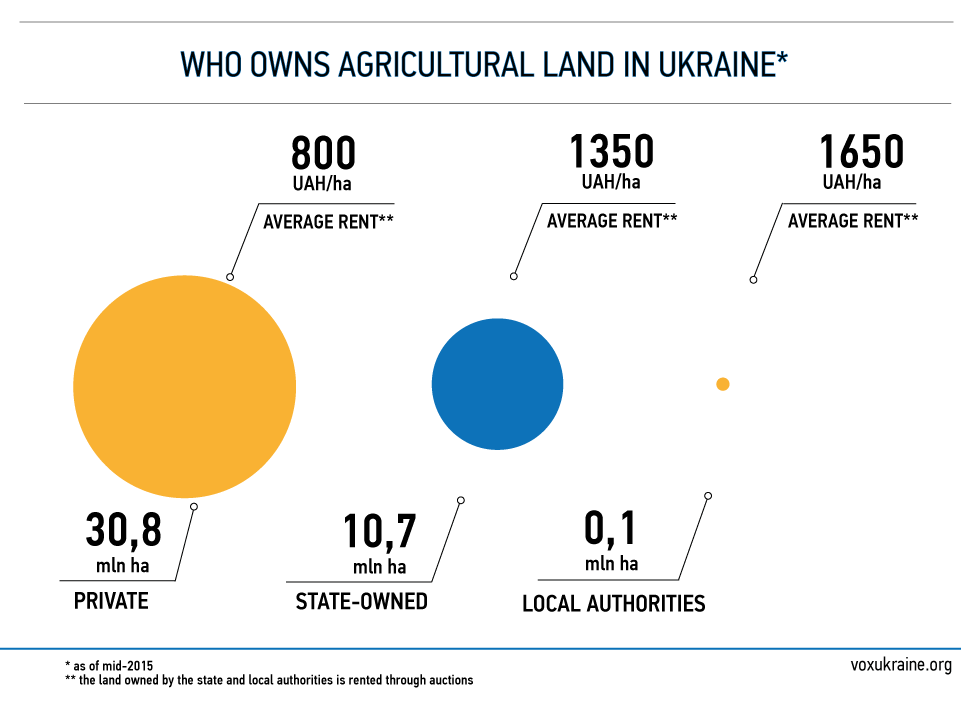Speaking against lifting the moratorium on sale of land, Lyashko threats with the danger of selling land for nothing “to foreigners and big landowners”. On the other hand, he provides data on the growth of agricultural output despite the moratorium.
First, agricultural land is not fundamentally different from other assets owned by many Ukrainian citizens, such as apartments. Why there’s no moratorium on sale of apartments? Moreover, even assuming the purchase of land by foreigners “for nothing” (now such purchases are forbidden by law), they will hardly move it out of the country, so the added value will be produced in the country. Furthermore, studies indicate that the main opponents of the sale are not owners of land shares, who should make such decisions. The experience of other countries with no restrictions on purchase of land by foreigners shows no dominance of foreign landowners.
Picture 2. Who owns the land

The increase of crop yields since 2001 isn’t a consequence of the moratorium. First, in the 1990s, the land market didn’t exist. The moratorium preserved the status quo and didn’t significantly change the rules of the game. The event that led to the growth of agricultural production in the early 2000s was liberalisation of agricultural prices by Yushchenko’s government in 2000, which created economic incentives for producers. Second, productivity of various crops in Ukraine has almost doubled over the last decade (however, it is still 2-3 times lower than in Europe) despite the moratorium. Most likely, it would grow much faster if the land market emerged in the early 2000s — because in the market, assets are moving from less efficient to more efficient owners. However, existence of the moratorium and insecurity of land users prevent attracting new technologies and investments into production with high value added.
Finally, Lyashko repeats the eternal “crying of Yaroslavna” about decrease of the rural population and the need to support villages. To this we’d like to note that urbanisation is an objective process happening all over the world as new high-tech professions appear. That’s why trying to artificially “chain” people to the villages, for example, by depriving them of opportunities to sell their land share and receive “initial capital” to move to the city means leaving them in poverty — because the moratorium, among other things, doesn’t allow small farmers to obtain loans for development. The moratorium is causing a further decline of rural Ukraine because it limits the rents and revenues of the owners of land shares. Among the consequences there are low living standards, low demand for goods and services in the countryside, and limited capacity to create jobs in the countryside that would meet this demand.
The full article is available here
Attention
The authors do not work for, consult to, own shares in or receive funding from any company or organization that would benefit from this article, and have no relevant affiliations


